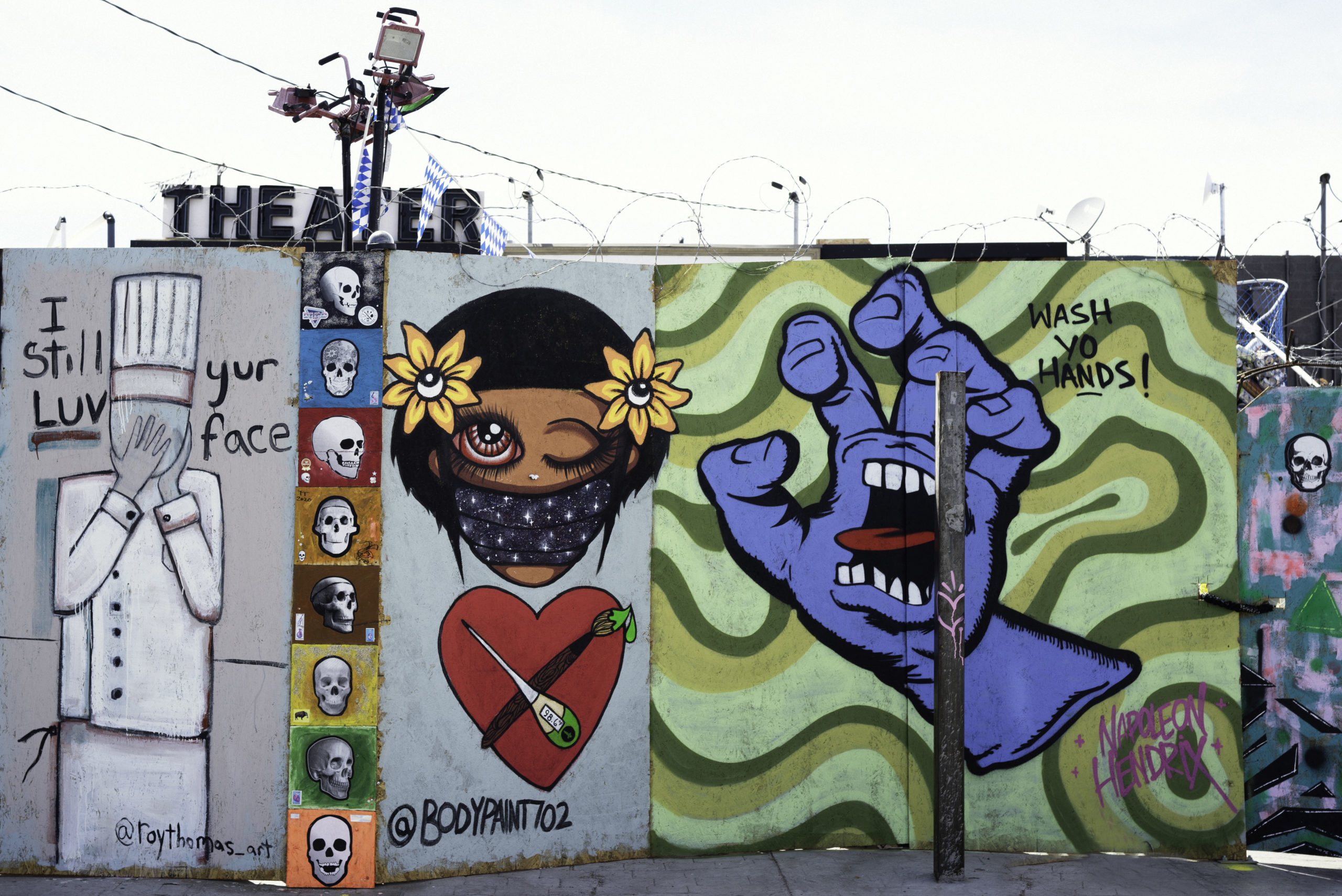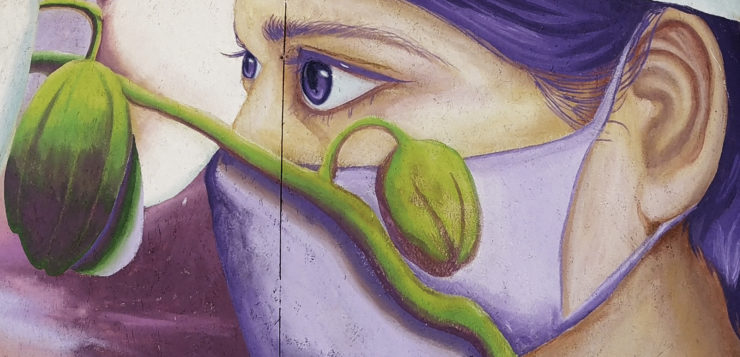SINCE MARCH 2020, I’ve interviewed dozens of LGBT people via Zoom to talk about their experiences during the Covid-19 pandemic for a full-length documentary, Attend Me: A Pandemic Journal, from Outspoken Films. Also, I’ve been making images and filming coronavirus-related street art in the Las Vegas Arts District known as “18b,” an eighteen-block, rundown corridor with recent small-business gentrification, where street artists painted murals. In Poetry and Commitment, Adrienne Rich wrote about the role of artists as fundamental to resistance movements:
But—let’s never discount it—within every official, statistical, designated nation, there breathes another nation: of unappointed, unappeased, unacknowledged clusters of people who daily, with fierce imagination and tenacity, confront cruelties, exclusions, and indignities, signaling through those barriers—which are often literal cages—in poetry, music, street theater, murals, videos, Web sites—and through many forms of direct activism.
§
Around the world, masks have been the one recurring metaphor to symbolize the Covid-19 pandemic. Historically, masks serve a social function and can be used in communal rituals to promote the cohesion and the well-being of a community, as protection from evil spirits, or to ward off sickness. Often in poetry a mask trope alludes to disguise, secrecy, and maintaining hidden identities.

In 1896, African-American poet Paul Laurence Dunbar wrote “We Wear the Mask” with the lines: “We wear the mask that grins and lies/ It hides our cheeks and shades our eyes,” expressing the sadness of concealing one’s authentic self. A century later, the hip-hop group the Fugees referenced the Dunbar lines in the song “The Mask”: “Put the mask upon the face just to make the next day/ Feds be hawking me, jokers be stalking me/ I walk the streets and camouflage my identity.” Mental health counselor and author Irene Javors of Jackson Heights, NY, writes in her poem “Pandemic–Gotham Weeps”: “We are ordered to wear masks/ So familiar/ To a lesbian/ Living in the patriarchy/ Life has always been a masquerade/ Of camouflaged desires.” The mask can refer to being closeted, disguised behind a false identity. During the Covid pandemic, masks have been politicized, as condoms were by abstinence-only homophobic religious activists during the AIDS plague.
Steven F. Dansky, a longtime contributor to these pages, has been an activist, writer, and documentarian for more than fifty years.






